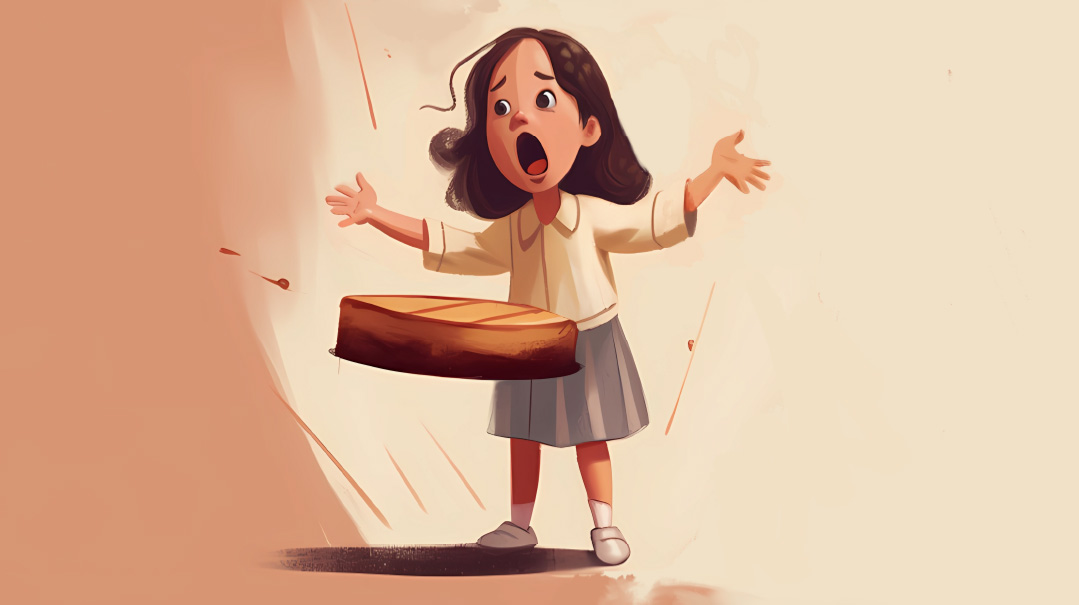The Storytellers: Part 3

Yes, Margalit thought, Abuelita taught me about words and their power… Maybe that’s why I think more than I speak?

Margalit watched her father walk to the front of the gathered crowd, so many of them family, but so many neighbors and friends as well. Seeing him deliver a hesped was surreal, everything was surreal. This whole day was one cloudy dream.
“...Our Abuelita…” Margalit tuned back in to her father’s words. Just the way he said her name, his voice hushed with reverence, told a story. Abuelita had been known as a holy woman. Many people, even those outside their family, believed she had a special gift, that her tefillos were always answered and that her brachos came true.
As beautiful as the numerous speeches were, with all the stories that were told, shared, passed around, no words could ever describe who Abuelita was. She was tiny. She was so old; no one really knew how old she was. She herself probably hadn’t known how old she was. She was thin, with bird-like bones, a sparrow — no, a hummingbird. Yet she was powerful, an eagle.
She was something bigger than age, because really, her essence, her stories, her lessons were forever. And she was a giant of spirit. Yet she was a woman of few words. When those words were given, each one was valued like a precious gem. Yes, Margalit thought, Abuelita taught me about words and their power… Maybe that’s why I think more than I speak?
Margalit listened and remembered, and was surprised when the speeches ended. She wasn’t surprised to discover twin tracks of tears running down her face as the last words were spoken.
Smadar tried to focus and, if anyone had asked — which they hadn’t — she’d have said that she’d made a valiant effort. But her mind kept wandering back to that mysterious box, the gift she’d inherited from Abuelita.
Late last night, as she’d finished stuffing things into her suitcase, she had held it in her hands, rubbing the intricate carvings on the cover. It was a strange box, not just for its beauty, but for its lack of a discernable opening. She’d tried the lid. Nothing. She’d flipped it over. Nothing. No evidence of a keyhole, no lock, no latch. When she turned it, she heard the muffled sound of something — or things — inside. And the bottom, that was a whole fascinating piece unto itself. Different colors of interlocking wood made up the bottom, like a Chinese puzzle box. She ran her finger over the surface again and again, wondering, How does this box open?
What had Abuelita meant by giving it to her? She sighed softly. She hadn’t seen Abuelita in years, but of course she remembered the old woman, her great-great-grandmother, her frail, wrinkled hand light like a cloud, like a wisp of nothing.
Smadar had read somewhere that time was like an accordion. She loved that analogy, and now in mourning, she thought of it even more. At certain parts of the melody, time seemed to stretch and go on forever, and at others… it shrunk and flew by. Sometimes she could imagine herself holding Abuelita’s fragile hand, as if it was just yesterday they had been together. But other times it felt like it had been an eternity since she’d heard her great-great-grandmother’s voice.
She and her cousin Margalit had been the first two great-great-granddaughters in the family. Abuelita had taken them aside the last time they’d been together and looked into their eyes for a long time, no words necessary, just a deep connection of hearts. Smadar would never forget that feeling, of someone looking into her deepest self. Abuelita saw her neshamah. It was with that in mind that she’d wrapped Abuelita’s precious gift in some of her softest clothing and carefully packed the box in her suitcase.
Later, after the levayah had finished and the family had gathered in the shivah house — Margalit’s house — the two cousins finally made eye contact.
Smadar looked at Margalit, a cousin her own age. She and Margalit had always gotten along. Margalit was dreamy and a little different, if Smadar was being completely honest (and she was), but that was one of the qualities that made her so endearing. Also, there was something about family that made everything comfortable, uninhibited, less awkward. So what if Margalit was a bit in the clouds? Smadar smiled to herself, her heart filling with warmth. Margalit liked Smadar for who she was, Smadar was sure of it — not for any of the gazillion activities she did. Goodness, she didn’t even know if Margalit knew anything about her “real” life back in the States. She was sorry, deeply sorry, that the reason to get together was this huge loss for their family, but she was also looking forward to rekindling her friendship with her cousin.
The next day dawned bright, full of promise, and Smadar woke early in the unfamiliar bed. She could hear chatter in the other room, the words drifting in like little wisps of cloud in an otherwise sunny sky. “Oh, she’s just wonderful,” someone — one of her aunts? — was saying. “What a fabulous young woman she is, a true tzaddekes,” another agreed. “I can’t get over all the things she’s doing….”
Smadar put her hands over her ears. She had no idea who they were even speaking about out in the living room, but it didn’t matter. All her insecurities started up just the same. What about me? Do I measure up? And then her thoughts wandered over into darker territory, in which she pictured herself as one of those Russian dolls, with so many empty wooden shells nestled one inside the other. I’m not a matryoshka doll or an onion, she thought. Neither of those is the right metaphor. I’m a pinata, all layers of light, fluffy colorful paper… but hollow. If anything poked me… they’d just discover a bunch of sugary sweets and a whole lot of emptiness.
She shook her head, trying to clear the depressing thoughts. She’d put on a robe, wash, and go to find her cousin. Maybe Margalit would know something about the mysterious box.
Margalit was easy to find, sitting in the living room on the edge of the activity, not in it and not entirely out if it. She was holding a book in her hands, like a prop in a play, making it easier to sit there amongst everyone. She liked reading, but who could read at a time like this?
Even more than reading, she liked writing. More specifically, storytelling. As a young child, she had often told stories, picturing animals and castles and entire tales as she peered off into the fluffy clouds. The story she was itching to tell now was the story of the mysterious key she’d received from Abuelita on her deathbed. If only she could unlock the tale…
Who else could conjure kings from the sky, could build palaces with words, could make something out of nothing? Her eyes fell on her cousin, just coming into the room. Smadar was carrying an unusual wooden box.
to be continued…
(Originally featured in Mishpacha Jr., Issue 941)
Oops! We could not locate your form.







